WHAT WE’RE WATCHING
‘Steinheist’ — scrutinising and dramatising South Africa’s biggest corporate scam
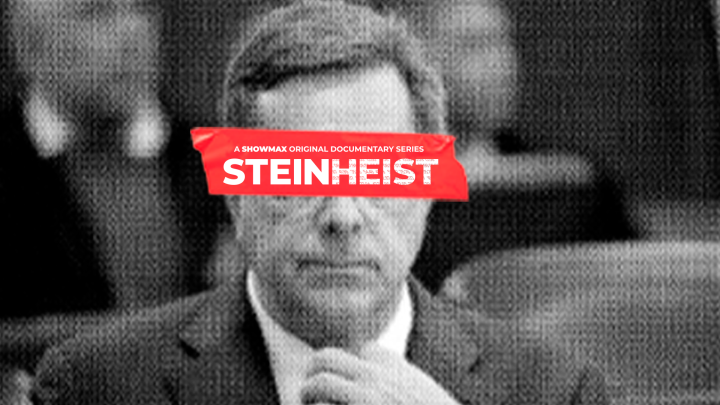
A new three-part documentary by the producers of Devilsdorp on the fall of Steinhoff highlights not only the infamous dealings of Markus Jooste but also how corruption in the private sector all too frequently flies beneath the radar.
The first episode of the docuseries by production company Idea Candy and directed by Richard Finn Gregory, was released on Showmax on 22 September, with the next two parts set to drop on the following Thursdays. The series profiles Markus Jooste, whose years of corruption led to investigations into “accounting irregularities” and his resignation as CEO in 2017, which wiped billions of rands from the JSE – the biggest corporate scam in South African history.
The company was started by German entrepreneur, Bruno Steinhoff who purchased cheap furniture in Eastern Europe and sold it in the West, but it was only after merging with Markus Jooste’s dodgy furniture company Gommagomma and being listed on the JSE that Steinhoff became a household name in South Africa and grew rapidly.
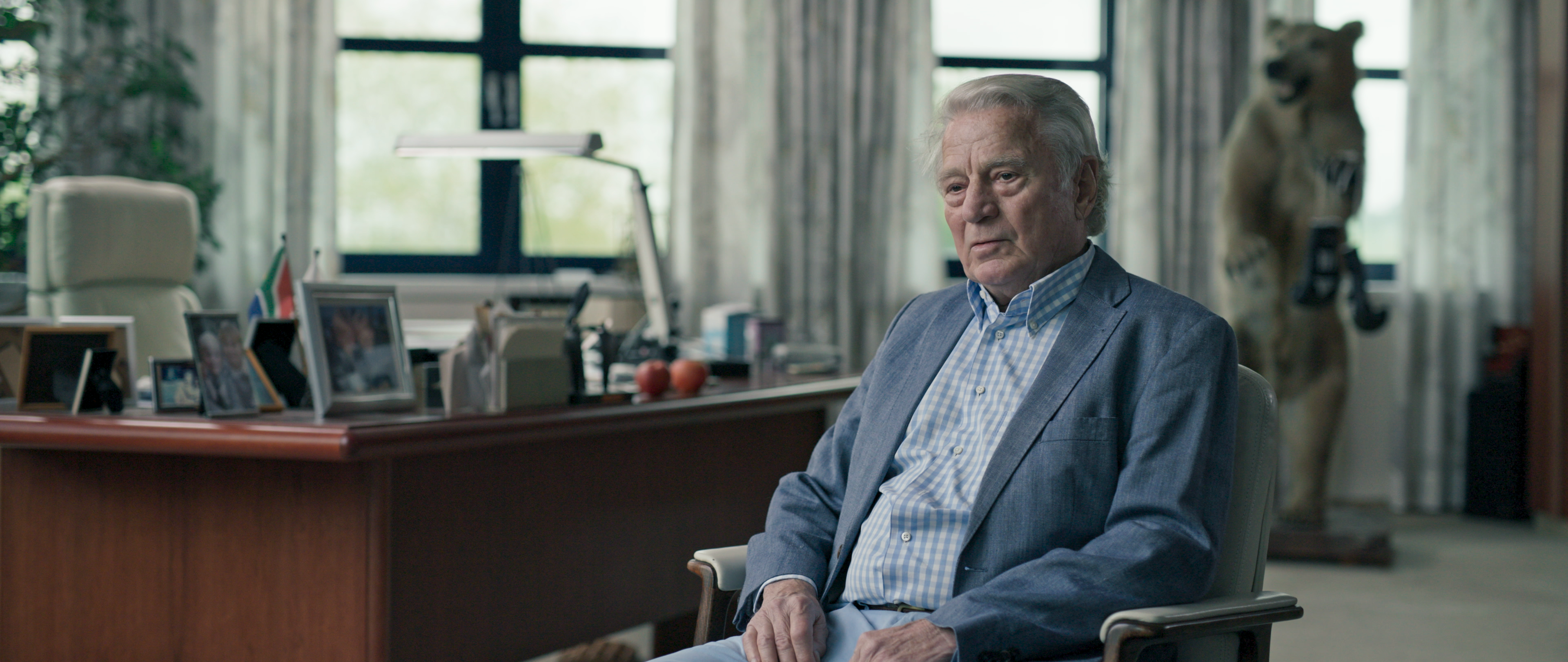
Bruno Steinhoff. Image: Courtesy of Showmax

Markus Jooste. Image: Courtesy of Showmax
When the cards finally toppled, at the height of the company’s inflated value, it had subsumed established South African brands like Ackermans, Incredible Connection, and PEP, it was employing more than 130,000 people across four continents and it was worth more than R200-billion, 90% of which vanished in a week.
Thousands of ordinary South Africans lost their investments in the collapse, even people who didn’t know what Steinhoff was, because government pensions were invested in it; and yet there was a lot of confusion about how and why this had happened.
The production company assembled a host of savvy South African experts to break it down, led by editor of the Financial Mail, Rob Rose, whose 2018 book of the same name the series is based on. Rose is not the most animated of interviewees, but he is the person who’s able to contextualise the disaster and extracts the most relevant lessons.
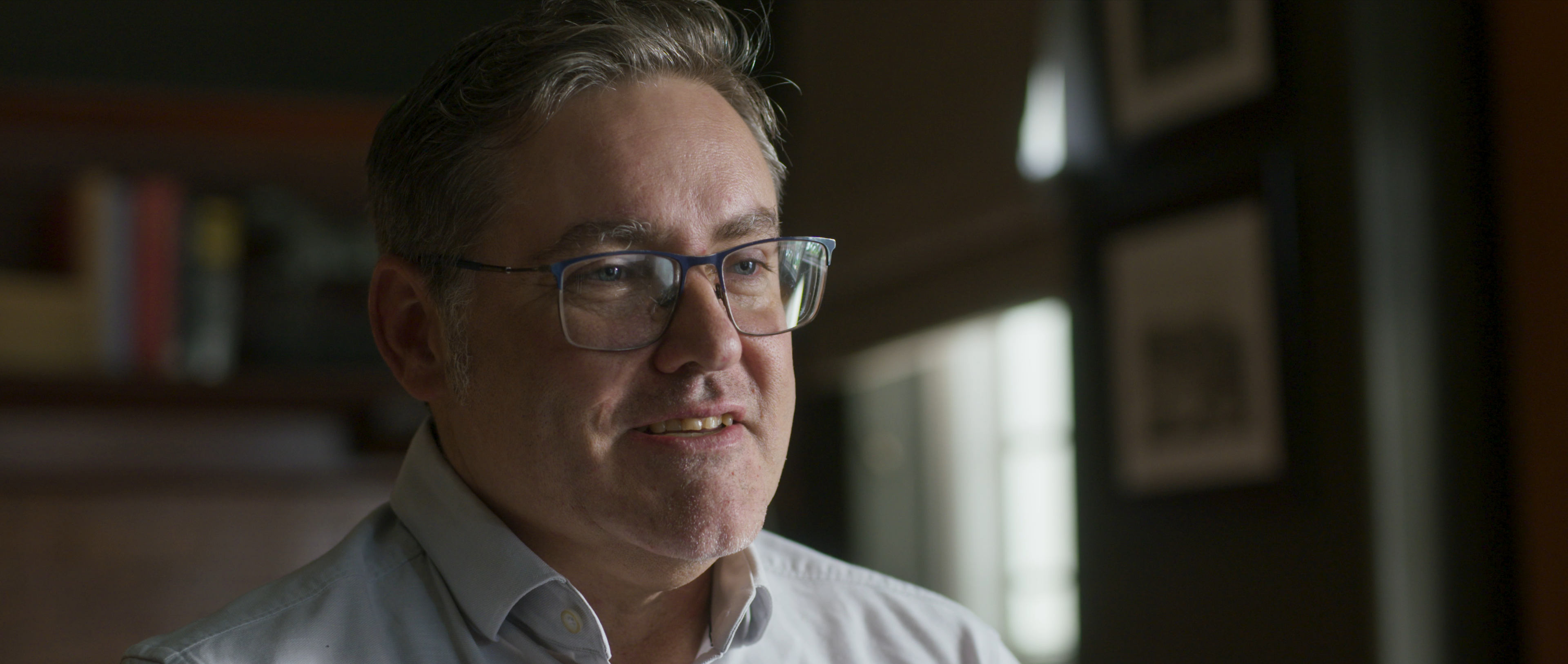
Rob Rose. Image: Courtesy of Showmax
Rose points out that while the South African media and public are highly preoccupied with the corruption of political leaders, there is less understanding of the abuses committed by corporate leaders, even though their impact can be just as devastating. Indeed, the numbers involved in the Steinhoff scandal make Nkandla seem almost inconsequential.
That is not to create a dichotomy between the public and private sectors, or undermine the severity of state capture — as emphasised in the series, corporate and governmental fraud are often linked or facilitated by one another. The Guptas’ dynasty also dissolved in 2017 — the other prime example of how white-collar crime is treated differently to other kinds of crime in South Africa. As it’s put in the series, “If you steal R100,000 you go to jail, if you defraud a company of R100-billion, you don’t go to jail”.
Despite the gravity of his crimes, Jooste has spent his days since the collapse swanning about Hermanus. It’s taken a long time for Steinhoff to figure out how to bring him to account. Apparently, once the cat was out of the bag, he told his wife, “Give this five years and by then it would have blown over and we can move on with our lives”. The timing of this series is a perfect contradiction of that arrogance.
Part 1: Building context
Rose explains that such massive scandals often grow from one pivotal decision to cover up a small mistake. Other experts weigh in on more abstract biographical elements: forensic psychologist Dr Giada Del Fabbro pipes in with vague and slightly sensationalist theories about his psychopathy, explaining terms like “snakes in suits” and postulating Jooste’s mental state; while Pieter Du Toit, author of The Stellenbosch Mafia: Inside the Billionaire’s Club digs into Jooste’s poor and yet privileged upbringing and how his desire to be a part of Stellenbosch society drove his egotistical decisions as a businessman.
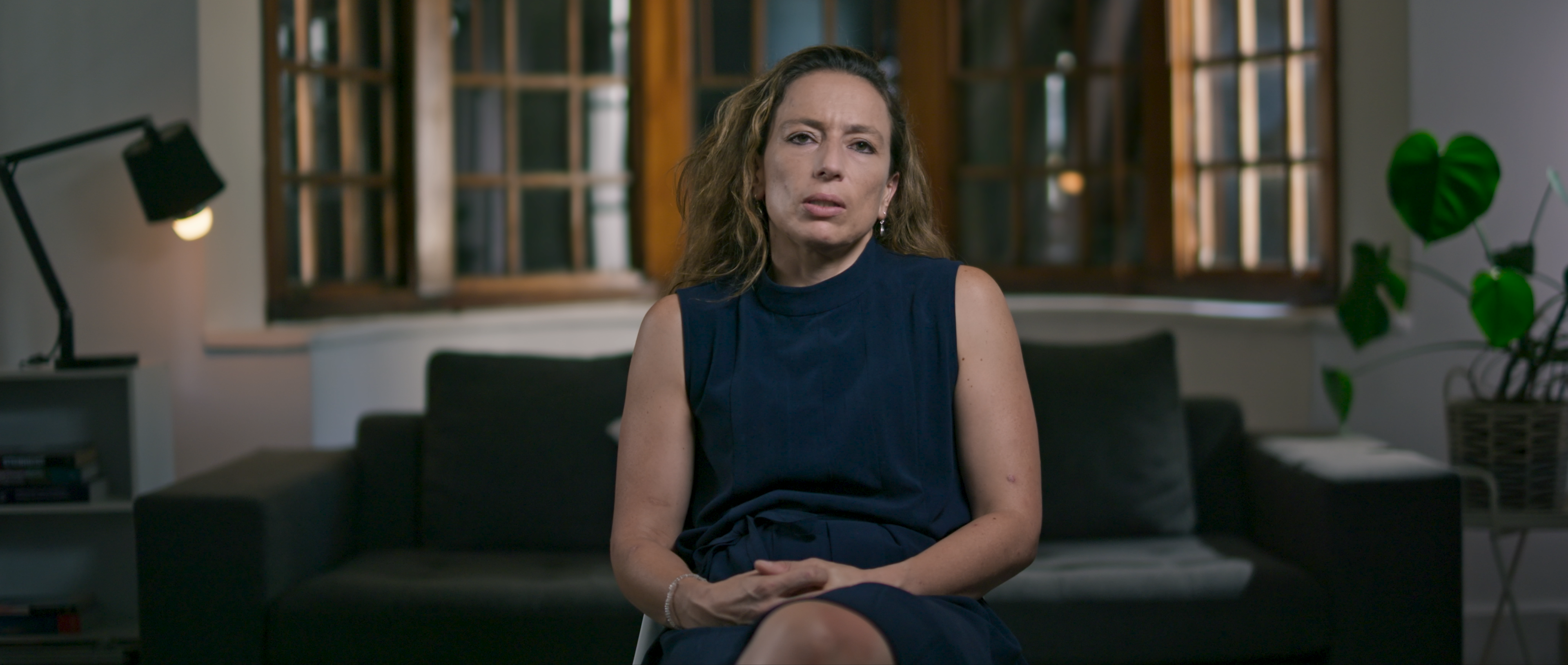
Dr Giada Del Fabbro. Image: Courtesy of Showmax
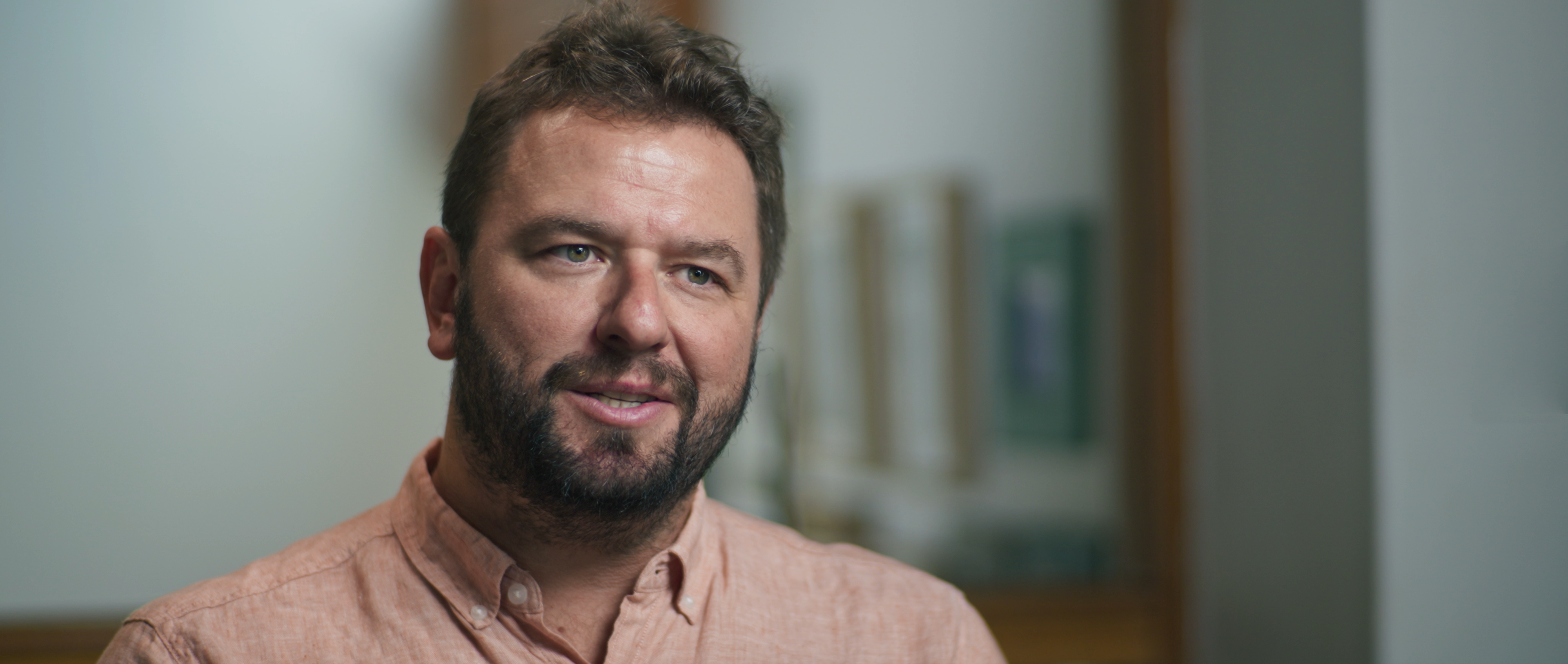
Pieter du Toit. Image: Courtesy of Showmax
The series is definitely made with South African audiences in mind, but is also explained from scratch to accommodate international viewers, necessitating a level of objectivity. It’s fascinating to consider familiar spaces like Stellenbosch from a fresh perspective.
Former Steinhoff executive Christopher Rutledge speaks often and damningly about the tribalism within the company, shaped by the toxic masculinity of apartheid structures — machismo, braai vleis, drinking and casual misogyny. Kganki Matabane, CEO of the Black Business Council later suggests that any lack of diversity in a company contributes to a culture of complicity and unaccountability that can enable corruption.
Visit Daily Maverick’s home page for more news, analysis and investigations
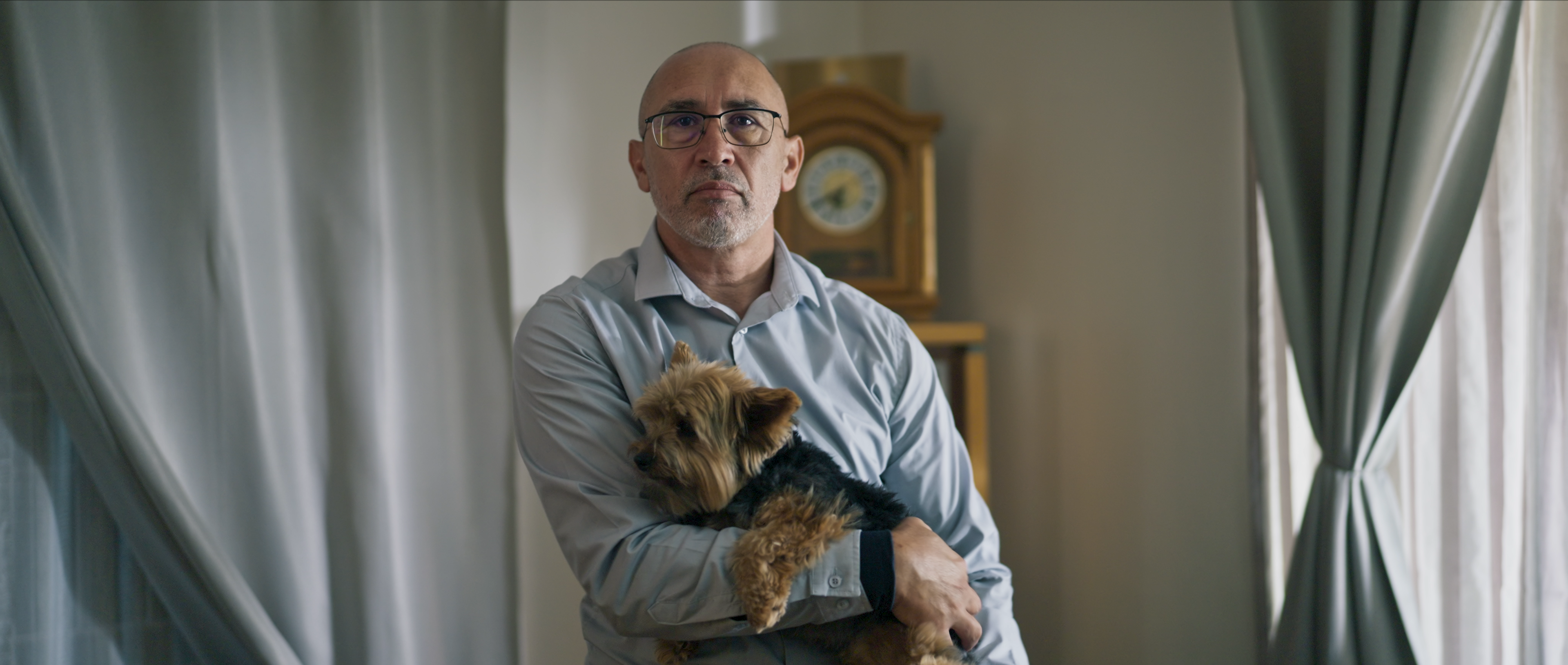
Christopher Rutledge. Image: Courtesy of Showmax

Kgani Matabane. Image: Courtesy of Showmax
There are also engaging interviews with financial analyst Craig Butters, who spotted the signs early on but was mocked by external analysts, a prime example of how whistle-blowers struggle to get taken seriously; and Christo Wiese, billionaire former chair at Pepkor and Steinhoff and at one time the richest person in the country.
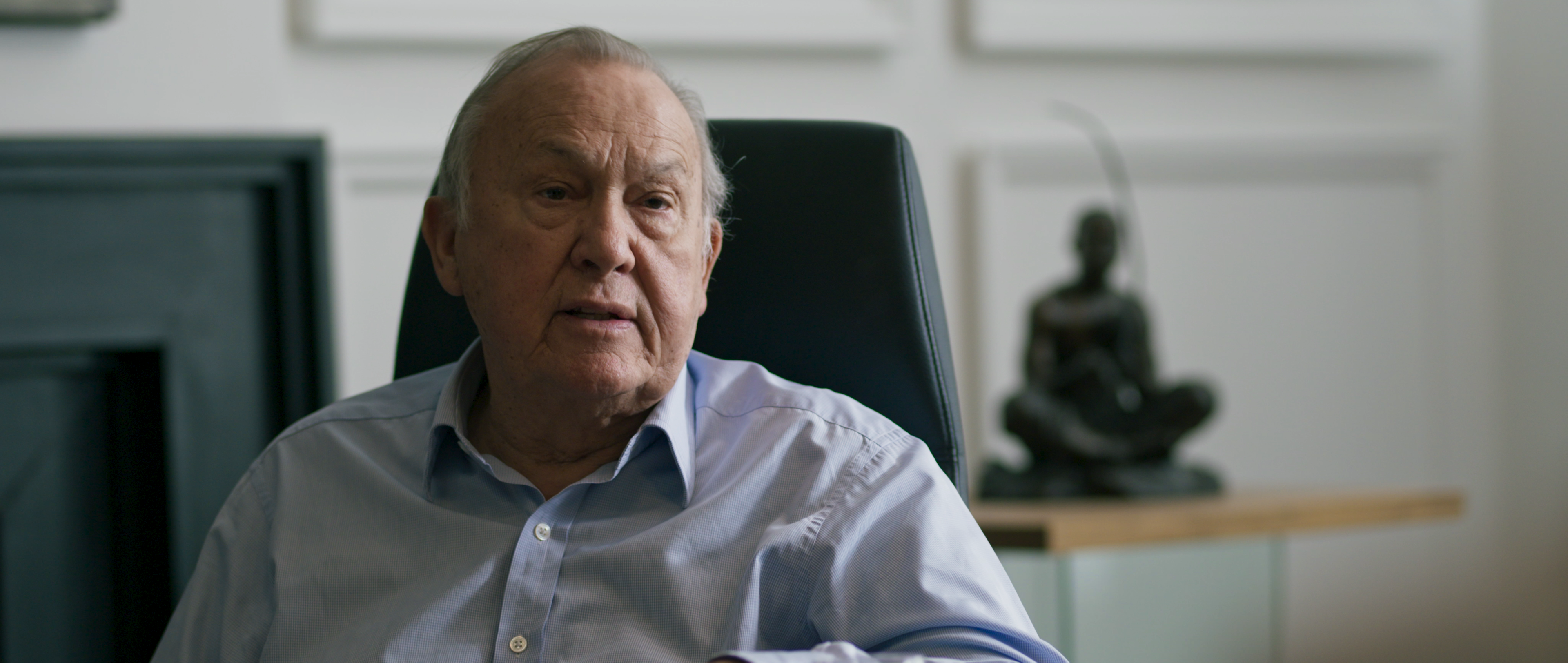
Christo Wiese. Image: Courtesy of Showmax
Gregory handled the diversity of these interviews so that the human side of the Steinhoff saga is easy to understand. The series falls a little short however in its oversimplification of what actually happened and borderline-patronising explanations of basic financial concepts.
The narrative is engaging and well-paced and there is some tension in the score although Gregory resisted the temptation to overdramatise and force a thriller. But in the interest of making complex financial concepts accessible to a wider audience, financial journalist Fifi Peters has been cast to break down the essentials of investment with visual metaphors, in the style of a magician’s assistant. “We’re going to be hearing quite a lot of financial jargon as we go along, so let’s break down some of those terms.”
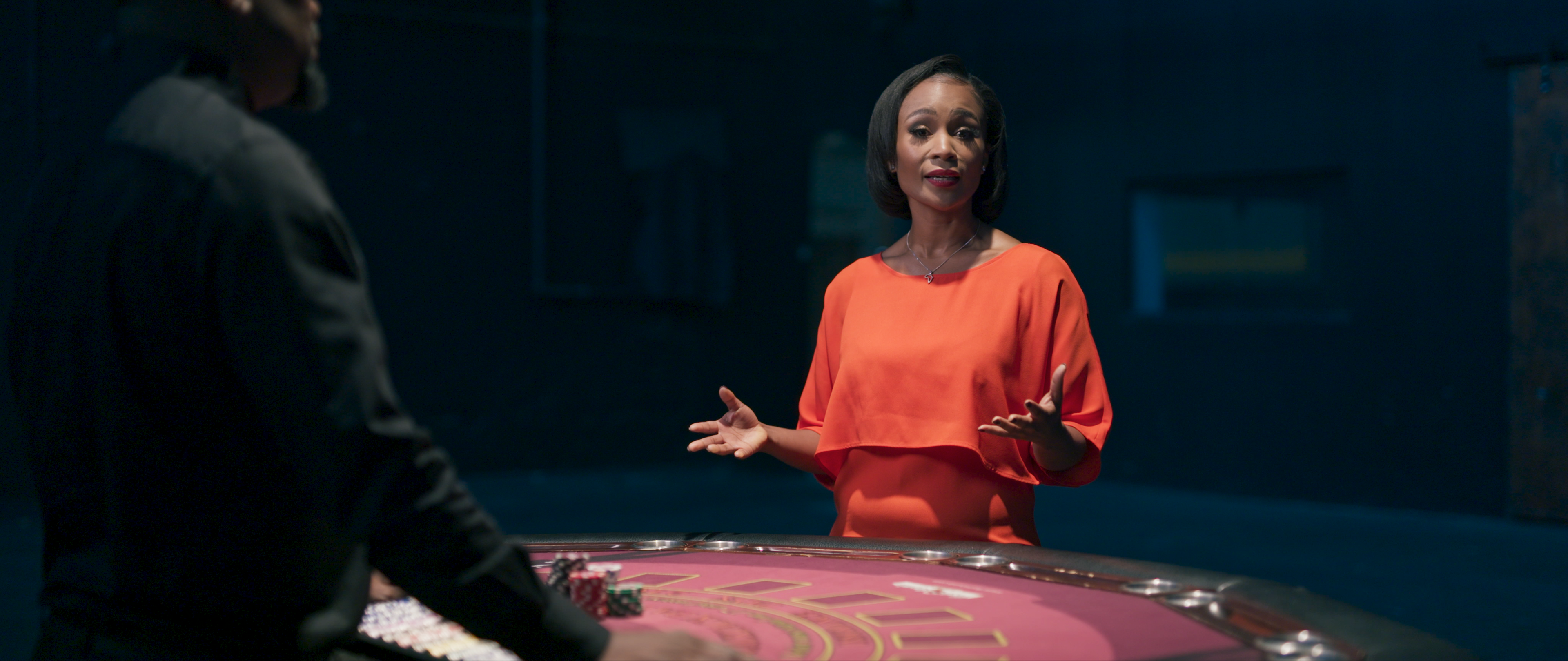
Fifi Peters. Image: Courtesy of Showmax
This gimmick is a pretty transparent copy of the Jenga blocks scene from The Big Short, where the fourth wall is broken by various characters and celebrity cameos to explain financial concepts, but Steinheist is a documentary — the fourth wall was broken from the start, and without the comedic flare, the theatricality of the explanations lose their ironic edge.
The concepts she explains are so basic that it seems unlikely a person would be watching a documentary on financial fraud without already understanding them: What is a share? What is insider trading? What is short-selling? You’re unlikely to finish Steinheist with greater understanding of finance and you could learn a similar amount about the specifics of the scandal on Wikipedia. For some people, maybe those are selling points, but they also seem at odds with the intention to expose Jooste.
As a reference to Jooste’s obsession with horseracing, Steinheist leans into a horse motif, symbolising links to his upbringing, his elite circle, his propensity for taking risks, and even his inflating the value of Steinhoff in the form of a Trojan horse. Not all the multimedia footage is used as effectively, though. A recurring CGI map graphic and the inclusion of one too many cringey promotional Steinhoff videos also don’t measure up to the quality of the interviews.
The most valuable insights the series presents to laymen viewers are explanations of the systematic flaws that prevent such corruption from being identified and the red flags to look out for. For example, Rose suggests in episode one that because a lot of analysts still sit in investment banks which earn money advising on deals to companies, it’s against their interests to question them. In episode three, Bernard Agulhas, former CEO of the Independent Regulatory Board for Auditors even reads out a long list of red flags that could have alerted auditors to potential fraud existing.
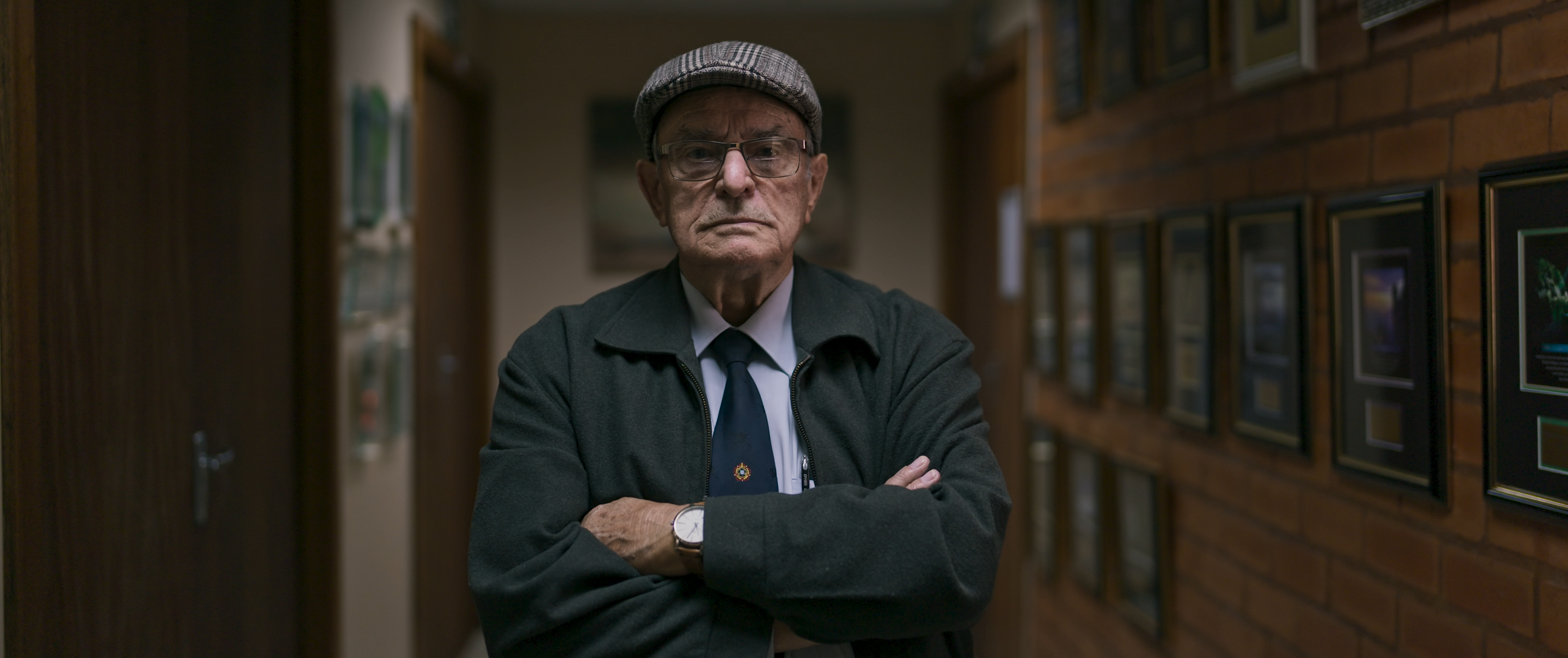
Albert van Driel. Image: Courtesy of Showmax
It might come as a surprise that Steinhoff has survived this disaster, but that’s not necessarily a bad thing — it may help salvage some of the losses incurred by shareholders, and lest we forget that Steinhoff itself will be one of the main claimants against Jooste when he sees his day in court.
Steinheist puts forward a clear case that misrepresentations of the truth by private companies are still not scrutinised to the same extent as that of politicians. Agulhas complains about how auditors are held to account and subject to having their licenses stripped even though private parties are not.
According to Albert van Driel from the Association for Monitoring and Advocacy of Government Pensions, the long-term effect of Steinhoff’s collapse is actually the big problem — that “defenceless people who were sweeping the streets” have already been caught up in the Steinhoff situation, many of them without even understanding why. DM/ ML
Part one of Steinheist is available in South Africa on Showmax from 22 September with part two on 29 September and part three on 6 October.
You can contact This Weekend We’re Watching via [email protected]



















 Become an Insider
Become an Insider
This is the saddest story in the South African corporate corruption with the fellow walking free! Godfrey Lebeya has been saying utter nonsense. He has be talking about people being trained or developing capacity to deal with complex commercial cases. We know that Germany will be very willing to help to put the Steinhoff criminals behind bars. The unwillingness to prosecute is the involvement of the PIC and very connected people like Jayendra Naidoo and Jay Naidoo. Godfrey Lebeya can lie to fools as we are aware of many funny deals that continue at the PIC including write offs worth over R6 billion and millions paid to connected politicians.
The Hawks and NPA capture has become a matter of serious concern including the whitewash of the Mpati Commission on the PIC. Many deals were not investigated by the Commission deliberately to protect the current President in particular MTN deals where the PIC lost billions. These are serious matters that will never be attended to and one is keeping an interest on the reinstatement of Matshepo More at the PIC. Justice Mpatri failed to look at the Nigeria deals and Ramaphosa was very much conflicted in appointing the Commission as a beneficiary of PIC funding. It was incorrect for him to appoint the Commission.
Illicit cash outflows, mispricing and illicit trade transfers
Every year big business, mostly transnational corporations illicitly park hundreds of billions of dollars out of the reach of tax and other regulators. This is what is referred to as illicit financial flight. It is estimated that 80% of illicit financial outflows is composed of the proceeds of tax evasion and laundered corporate transactions and not drug trading, racketeering, counterfeiting, contraband, and terrorist financing. The most important component of illicit outflows is trade mispricing that is the mis-invoicing of international trade transactions with the ultimate purpose of diverting financial resources.
South Africa is heavily affected by illicit financial outflows, according to data released by Global Financial Integrity. Between 2002 and 2011, South Africa lost a cumulative 1,007 billion rands to illicit outflows, i.e. more than a trillion rand. In 2007 a comrade we have had a long association with, Professor Ben Fine at SOAS University, working with other radical economists, estimated that there was the equivalent of 23% of GDP that was illicitly transferred out of South Africa. In 2012, the year of the Marikana massacre, SA lost R300 billion in illicit financial flows.
He did not run to Dubai, but still is a free man. What is being hidden here?
All money stolen from the SA taxpayer resides happily in Dubai – new home of criminal South Africa! No extradition laws make this the perfect hideout…..
It is shocking that the crooks behind all those undisclosed related party transactions are not behind bars. If the JSE was NYSE they would long since be in jail. As to the people that invested : buyer beware still applies, the signs were all over all along. Just chart reported headline earnings and operating cashflows…
Then why does the venerable JSE charge a protection fee?